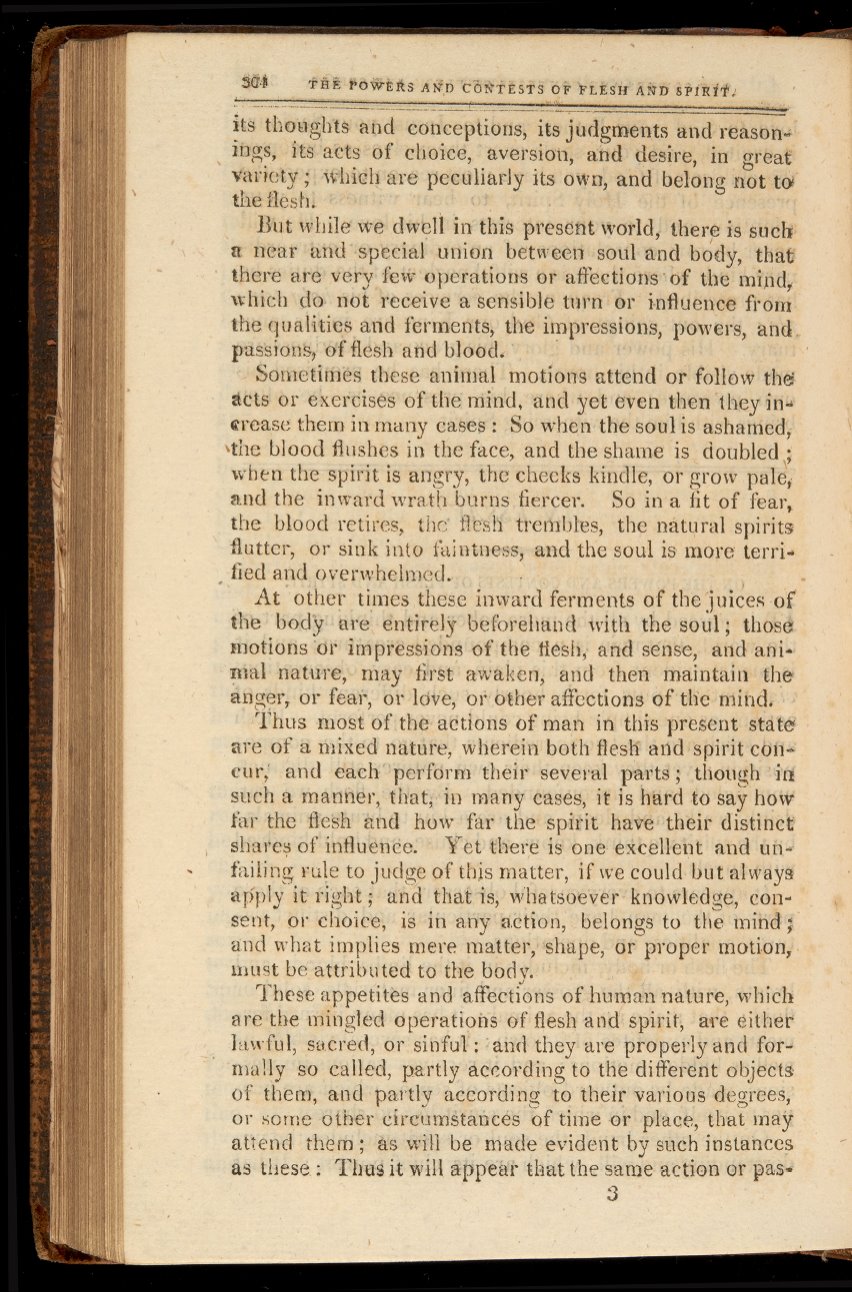

THE
OVVÈÁs
AhTD
CÖh*2EST5
OF
FLESH
AÄtD'
6PÍRÍ14ï
its
thoughts and
conceptions, its
judgments and reason-
i.n;s, its
acts
of
choice,
aversion, and
desire, in
great
variety
;
which
are
peculiarly
its
own,
and
belong
not
toó-
the
flesh:
But
while
we dwell
in this
present
world,
there
is
such
a near and
special union between
soul
and
body,
that
there are
very
few
'operations
or affections
of
the
mind;
wwhich
do
not
receive
a sensible
turn or
influence from
the qualities and
ferments, the impressions,
powers,
and.
passions,
of
flesh
and blood.
Sometimes these animal motions
attend or
follow
the
acts
or
exercises
of the
mind,
and yet
even then they
in
crease them in many
cases
:
So
when
the
soul
is
ashamed,
'the
blood
flushes in
the
face,
and
the shame
is
doubled
;
when
the
spirit
is
angry,
the
cheeks
kindle,
or
grow pale,
and
the inward wrath burns
fiercer.
So
in
a
fit
of
fear,
the
blood retires,
the
flesh
trembles,
the natural spirits
flutter,
or
sink
into faintness, and the soul
is
more
terri
fled
and
overwhelmed..
At other
times these inward ferments
of
the
juices
of
the
body are
entirely beforehand
with the
soul;
those
motions
or
impressions
of
the
flesh,
and
sense,
and
ani-
mal
nature,
may first awaken, and then
maintain the
anger,
or
fear,
or
love,
or other affections
of
the
mind.
Thus
most
of
the actions
of
man
in
this
present state
are
of
a.
mixed nature,
wherein
both
flesh
and spirit con-
cur; and each perform
their
several
parts
;
though
in
such a
manner,
that,
in
many
cases,
it
is
hard
to
say
how
far
the
flesh
and
how
far the spirit
have their distinct
shares
of
influence.
Yet
there
is
one
excellent and
WI-
failing rule
to
judge of
this
matter,
if
we
could
but
always
apply it right
;
and
that
is,
whatsoever
knowledge, con-
sent, or choice,
is
in
any action,
belongs to
the
mind;
and what implies mere
matter,
shape,
dr
proper
motion,
must
be
attributed
to
the
body.
These appetites
and
affections
of
human nature,
which
are
the mingled
operations of
flesh
and
spirit;
are
either
lawful,
sacred, or
sinful:
and they are
properly
and for-
mally
so
called,
partly according
to
the different objects
of
them, and
partly according
to
their various
degrees,
or
some
other
circumstances
of
time
or
place,
that
may
attend
them
;
as
will
be
made evident
by such
instances
as these.:
Thus
it
will
appear that
the same
action
or
pas-
3

















